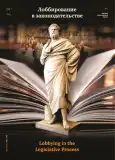On the Issue of the Civil Content of the “Outsourcing” Category in the Russian Civil Law System
- Autores: Sazonova T.V.1, Astafyev D.R.1
-
Afiliações:
- Russian State University of Justice
- Edição: Volume 3, Nº 2 (2024)
- Páginas: 37-42
- Seção: Private law (civil)
- URL: https://journals.eco-vector.com/2782-7372/article/view/633682
- DOI: https://doi.org/10.33693/2782-7372-2024-3-2-37-42
- EDN: https://elibrary.ru/FTUAFE
- ID: 633682
Citar
Texto integral
Resumo
This publication is dedicated to the research of the role and definition of the legal content of outsourcing in the system of Russian civil law. Using such scientific methods of research as analysis, description, classification, intellectual modeling, extrapolation, methods of logical cognition and the formal legal method, the authors reveal the economic and organizational content of the category “outsourcing”, distinguish outsourcing from other methods of managing resources and resource potential, identify the legal nature of outsourcing relationships in based on private law regulators, and distinguish outsourcing from outstaffing as well. An economic definition of outsourcing is given as a method of managing and using resources predominantly by small and medium-sized participants in business turnover, associated with the involvement in the process of creating useful value of third-party capital, labor and intellectual resources, technologies, technological solutions and management models, as well as proven business designs with the aim of increasing your own productivity, reducing costs and reducing liability. It is noted that, from the point of view of Russian civil law, outsourcing can be defined as a variant of one of the types of obligations regulated by the Civil Code, as a mixed contract, as an unnamed contract. It is established that the legal nature of outsourcing follows from obligatory relations, which prevents the mixing into such relations of other types of contractual borrowing of resources (primarily outstaffing), where, in addition to the private law component, there is a public law fill. The final part contains a conclusion about the complementary nature of contractual outsourcing relationships for the domestic civil law system.
Palavras-chave
Texto integral
Sobre autores
Tamara Sazonova
Russian State University of Justice
Autor responsável pela correspondência
Email: t.sazonova@rsuj.ru
Código SPIN: 6435-5569
Cand. Sci. (Law); Associate Professor, Department of Civil Law
Rússia, MoscowDanila Astafyev
Russian State University of Justice
Email: danilaast@mail.ru
Código SPIN: 3167-6605
Master’s Degree; Faculty of Training Specialists for the Judicial System
Rússia, MoscowBibliografia
- Bell D. The coming post-industrial society. The experience of social forecasting. Moscow: Academia, 2004. 788 p.
- Galbraith J.K. The new industrial society. Favorites. Moscow: Eksmo, 2008. 1200 p.
- Kurbanov A.H., Plotnikov V.A. Outsourcing: history, methodology, practice. Monograph. Moscow: SIC INFRA-M, 2017. 112 p.
- Porter M. Competitive advantage: How to achieve a high result and ensure its sustainability. Moscow: Alpina Publisher, 2016. 716 p.
- Heywood J. Outsourcing: in search of competitive advantages. Moscow: Williams Publishing House, 2002. 174 p.
- Kotlyarov I.D. Classification of types of outsourcing in modern economics. Bulletin of Cherepovets State University. 2011. No. 1. Pp. 126–130. (In Rus.)
- Kurbatov V.L., Fursova S.A., Chuprova I.Yu. From insourcing to crowdsourcing – we define the concepts. Russian Entrepreneurship. 2015. No. 16 (22). Pp. 4091–4098. (In Rus.)
- Lebedeva T.E., Prokhorova M.P. Crowdsourcing: Essence, types, key components for a modern company. Innovative Economics: Prospects for Development and Improvement. 2018. No. 5 (31). Pp. 75–80. (In Rus.)
- Netsvetaev A.G. Terminology and basic concepts in the field of engineering. Ugol. 2020. No. 10 (1135). Pp. 42–48. (In Rus.)
- Okumbekova M. The nature of vertical integration and management features in these structures. Moscow Economic Journal. 2021. No. 12. Pp. 577–585. (In Rus.)
- Polyakova A.V., Roshchina E.V. Economic efficiency of outstaffing. Leadership and Management. 2018. Vol. 5. No. 1. Pp. 25–28. (In Rus.)
- Rodin O.A. Development trends and prospects for the application of outsourcing agreements. Economics and Business: Theory and Practice. 2023. No. 5-3 (99). Pp. 85–87. (In Rus.)
Arquivos suplementares











